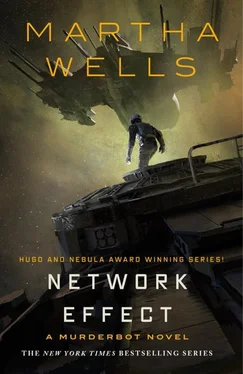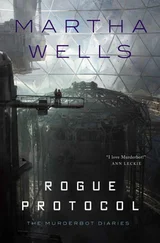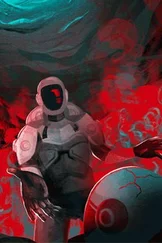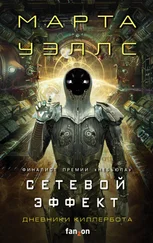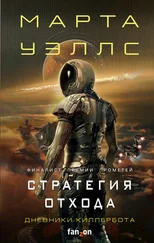Which, granted, I didn’t really, either. I knew it as an abstract set of rules and guidelines from my shows and other media, and so should ART, but it seemed to have missed that part.
(What I use when I fight/do security is a minimum level of response, which is meant to minimize damage to humans and augmented humans and the company’s property, which means taking into account a lot of factors. For example: what is an intentional attempt by a client to injure another client versus what is just humans being stupid and needing to be made to stop. Which is why you need SecUnits and not combat bots. And why humans doing their own security is a terrible idea, since they’re actually way more likely to flip out and shoot everybody for no reason than combat bots are. Anyway, what I’m getting at here is it’s not fair, because you don’t want to give a hostile a chance to stop you, right? That’s stupid. But you don’t want to kill/injure a client for walking in the wrong door.)
I forgot where I was going with this, except that ART apparently has no concept of fairness, or minimum level of response, because the sense of ART’s almost full attention was overwhelming. Then the door slid open and Ratthi walked in with Amena right behind him. “What is going on?” he demanded. “ Perihelion said you’re trying to copy yourself for a variable viral what?”
* * *
So I had to tell the humans my plan and then they had to argue and talk to each other about it and ask me questions like was I feeling okay.
Then half an hour into this fun process, Thiago woke up and they all had to explain to him what was going on. It was during this part that I realized Amena was (a) missing and (b) ART had cut me off from her feed.
I found her in a small secondary lounge area near Medical. As I walked in she was saying, “—because it thought you were dead. It was so upset I thought— Oh hey, you’re here.”
I stood there accusingly, not looking at her. She tried to hold it in and managed it for almost six seconds, then burst out, “ART should know how you really feel about it! And this is serious, it’s like—you and ART are making a baby just so you can send it off to get killed or deleted or—or whatever might happen.”
“A baby?” I said. I was still mad at Amena telling ART about my emotional collapse behind my back. But I really wish ART had a face, just so I could see it right now. “It’s not a baby, it’s a copy of me, made with code.”
Amena folded her arms and looked intensely skeptical. “That you and ART made together, with code. Code which both of you are also made out of.”
I said, “That’s not like a human baby.”
Amena said, “So how are human babies made? By combining DNA, an organic code, from two or more participants.”
Okay, so it was a little like a human baby. “That’s… irrelevant.”
ART said, Amena, it may be necessary .
ART sounded serious, and resigned. Amena pressed her lips together, unhappy.
I’d won the argument, yay me, so I left.
* * *
When we arrived at the dock, the explorer wasn’t there.
My threat assessment said there had only been a 40 percent chance that we would find the explorer in dock, but I could tell ART was disappointed and infuriated. Mostly infuriated.
Arada, Overse, and Thiago were up on the control deck, and ART put up its scanner image on the big display surface in the center, and sent it into the feed.
The dock was in a low orbit, attached to a planet via a structure called a lift tower, which held the shaft for the drop box used to reach the surface. The dock itself was a long structure with oblong protrusions where transports, shuttles, and other ships could dock. There were also inset rectangular slots that were module docks. The transports would deliver their modules of supplies, which would be moved from the dock into the drop box to be carried down to the surface.
“Surely a ship-to-surface freight shuttle would be more economical,” Ratthi said, studying the scan images. He was with me and Amena in the meeting room off the galley. “Isn’t the Corporation Rim obsessed with how much things cost? Couldn’t they have used this material to make more habitable structures on the planet?”
I had never been on a contract with a colony like this, but I knew the answer to that one. “It’s to keep the humans and augmented humans from leaving the planet.”
Amena looked up at me, confused. “Huh?”
I explained, “If they used shuttles, a group might organize, take over the shuttle, and use it to get up to the supply ship. Then they could escape.” Granted, the Targets had done that via the space dock, but they had had to find a way to force the Barish-Estranza contact party to help them. If a bunch of desperate colonists came up in the drop box, the ship could just do a quick detach from the dock’s airlock and it would be unreachable. It wasn’t a foolproof method but it was 90 percent effective. (Foolproof is another weird word. Shouldn’t it be smartproof? It’s not like you’re going to breach and seize control of a ship attached to a space dock by tripping or forgetting to bring your weapon or something.)
Amena looked horrified. Ratthi’s expression did a whole progression. He said, “Are you telling us the colonists here were prisoners?”
“It’s a possibility. Humans don’t want to be dumped on unimproved planets with no control over their air, water, and food resources.” I mean, who would? Mining installations are horrible, but at least the humans were getting paid for their work (sort of, mostly, sometimes) and the supplies were usually reliable. And mining installations were too expensive to just abandon.
I didn’t know much about the kind of colonies meant to settle partially terraformed planets because the company had never bonded them. Which should tell you how dangerous they are right there, if the company thought the budget was so tight that the whole operation was unrealistic. Terraforming projects designed to get everything livable and ready way before the humans and augmented humans moved in were expensive longterm investments, but they didn’t fail like this.
Ratthi shook his head and waved his arms. “I’m not even surprised anymore. I think I’ve been in the Corporation Rim too long.”
Hey, me too.
“So not only do they just dump the people on planets and leave them to die, but they force them to go there in the first place.” Amena’s expression was half boggled and half furious.
“Theoretically not.” Theoretically the colony is continually supplied until it becomes self-sufficient and starts producing its own resources and the original colonists are released from indenture. But you know how that goes.
“But the colonists are not volunteers,” Thiago clarified over the general feed.
“Sometimes they are,” I said, because I didn’t want to talk about it anymore. There’s volunteering, going into something where you knew what it might be like but wanted to do it anyway, for whatever reason, like when I had gone to Milu. And then there was “volunteering,” where you did something you shouldn’t have to do because the alternative was getting your insides fried by your governor module, or whatever the human equivalent was.
Thiago didn’t say anything, so that was a win.
ART said, I’m also detecting debris, probably from a series of destroyed satellites .
“Do you think it’s recent?” Up on the control deck, Arada stepped back as the scanner image passed through her head. She moved around, trying to angle for a better view.
ART said, Analysis suggests the debris has been in orbit longer than forty corporate standard years.
“I don’t suppose you can tell how it was destroyed?” Thiago asked.
Читать дальше
